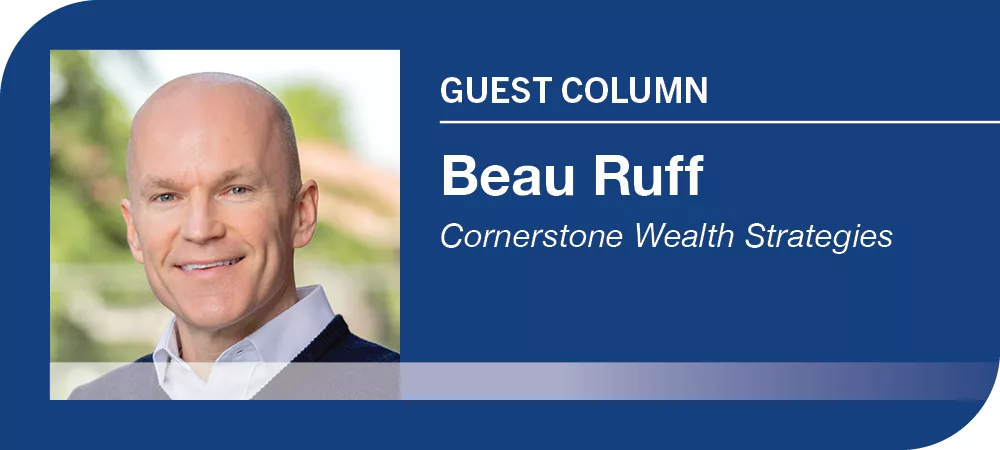
Home » Umbrella insurance provides additional asset protection
Umbrella insurance provides additional asset protection

June 13, 2023
In the world of asset protection, one well-known concept to mitigate risk is to transfer the obligation for payment of a valid claim to another person. This risk mitigation is typically accomplished through insurance.
With insurance, a person pays a regular fee (the insurance premium) so that if that person faces liability, the insurance agency is on the hook for paying the amount owed. Insurance is commonplace (or even legally required) for some risks like driving a car. It is often contractually required for a boat acquired with a loan or a home that is financed with a mortgage.
One tool that is rarely required but makes smart financial sense for most individuals is an umbrella insurance policy.
More coverage
An umbrella policy is an insurance product, alongside your typical home/auto/ATV/boat policies, that gives you another layer of liability coverage. Generally, umbrella policies are sold in increments of $1 million of coverage and have relatively low annual premiums (think a few hundred dollars per million dollars of coverage.).
The way that an umbrella policy is utilized is that it provides coverage after the primary insurance is exhausted.
For example, imagine you are in an unfortunate auto accident, and you are at fault.
The crash causes another person to suffer substantial injury or even death. Imagine that the injured party (or their attorney) makes a claim against you for $1 million.
Your typical auto policy may pay $250,000/$500,000 which means it would pay $250K per person injured and $500K total for all people involved in the accident.
You could imagine how it would be very easy to incur more than $250K in today’s high-cost medical services environment combined with the injured party’s lifetime wage loss. However, if you had a $1 million umbrella policy and the claim was for $1 million, the auto insurance policy would pay the first $250K (policy limit) and then the umbrella policy would cover the additional $750K of liability.
What’s it cover?
Umbrella policies are referred to as such because they provide protection on all your assets (think of a literal umbrella providing overarching protection) and the protection can be quite broad.
The policy might provide, for example, protection not just for a person injured on your property but also for libel or slander.
It can cover injuries when your dog bites someone and creates liability for the owner under strict liability laws. It can cover liability for an attractive nuisance on your property.
It can protect you against liability when your teenage child causes an accident under the family car doctrine.
And it can protect you when you are sued for additional causes of action (mental anguish, false imprisonment, etc.).
It can even pay for lawyer fees and costs associated with defending certain lawsuits. Be sure to read policy documents to determine exact coverage.
Note that when you implement an umbrella policy, it is common that a person would need to increase his or her insurance associated with both vehicle and homeowner’s insurance to qualify for the umbrella policy. Typically, that means you will have to raise some of your insurance coverage if the current coverage is inadequate, adding to the overall cost of umbrella insurance. But the coverage is nonetheless well-advised.
Additional liability protection
Because it provides additional liability protection against risk, an umbrella policy is a risk mitigation tool that can be used to help provide asset protection. And, because of its low annual cost, it can be an affordable way to provide better protection for yourself and your other assets.
So how much insurance coverage is appropriate?
A person should start with at least $1 million in coverage. For those considering more, the calculation is sometimes based on net worth.
So, if your net worth is $2 million, then you might get a $2 million umbrella policy. Sometimes the calculation is based on an amount equal to non-retirement assets (recognizing retirement assets are often exempt from claims).
While these are good considerations, another approach might be to look at the diminishing likelihood of claims as the claim amount gets higher.
For example, the likelihood of any monetary claim in excess of $5 million is much lower than the likelihood of a claim for $1 million.
The vast majority of all liability claims are under $1 million. Accordingly, a $1 million umbrella policy will protect against most claims. To be on the safe side (and to protect larger net worths), it might then be advisable to protect against the less and less likely claims by increasing the umbrella coverage with each incremental $1 million of coverage. A person can never protect against all risk but can make thoughtful considerations of both the likelihood of a claim and its magnitude.
What it doesn’t cover
While umbrella insurance is a great start and can provide broad coverage in the examples listed, what it doesn’t cover is also noteworthy.
Umbrella insurance does not protect against liabilities incurred pursuant to a contract. So, if you agree to pay someone and you later refuse, you can’t rely on umbrella insurance to make good on the agreement and pay your share. It also does not typically apply to losses suffered by a business.
Contact your business insurance agent for details on how best to protect your business.
Talk to your insurance agent about potential coverage options.
Beau Ruff, a licensed attorney and certified financial planner, is the director of planning at Cornerstone Wealth Strategies.
Opinion
KEYWORDS june 2023





